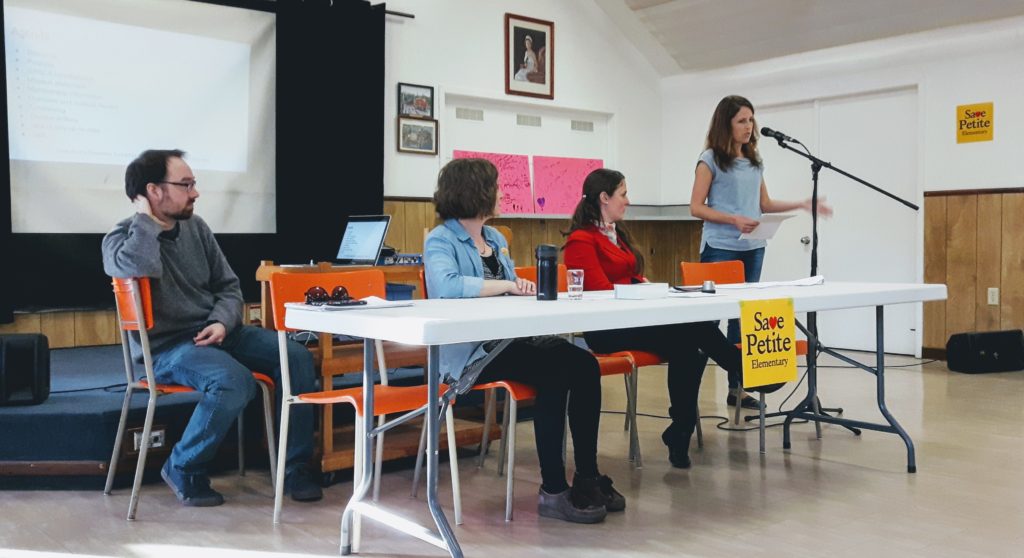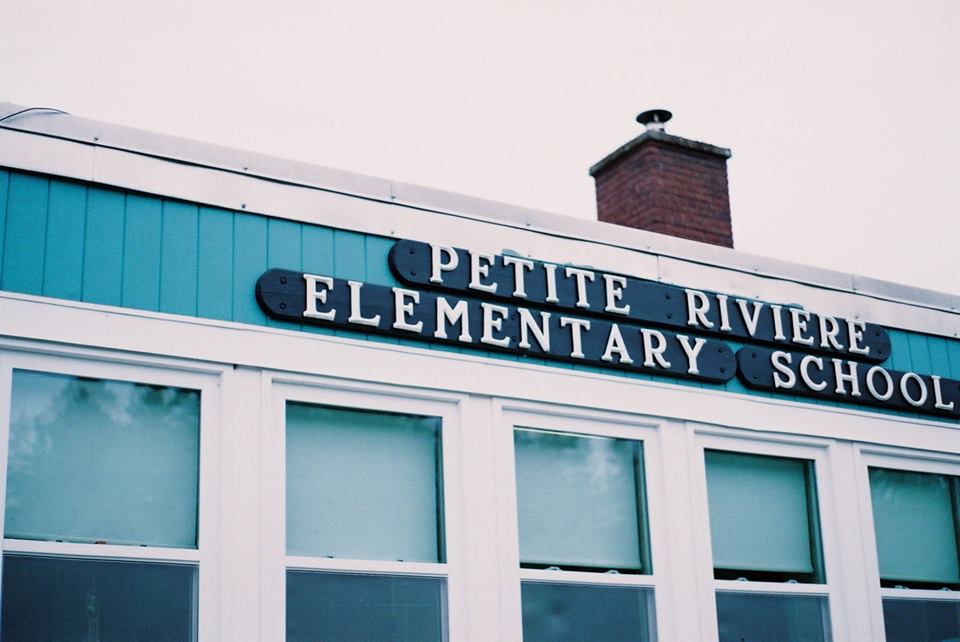From 2013: “The South Shore Regional School Board has confirmed Hebbville Academy cannot reasonably accommodate students from both Pentz and Petite Riviere elementaries.”
What circumstances have changed such that the current SSRSB feels that closing both Pentz/Petite and sending the kids to Hebbville is now a viable solution?
From 2013, the previous Superintendent said (wrt closing both schools and sending them to Hebbville):
“I believe that’s not a configuration that we would ever bring forward to the board for consideration.”
She then followed up to clarify that the study committees never studied the scenario in which both schools close:
“So I do think it’s safe to say that option was not detailed in the reports because it was not considered a viable option.”
The board chair at that time was also Mr. Payzant. The article is worth reading in its entirety for further insight into the position of the board at the time of the motions.
Below is the full article reprinted with permission from LighthouseNOW. Thanks to https://lighthousenow.ca for generously allowing this article to be shared.
January 3rd, 2013
Schools under review for possible closure
by Stacey Colwell
COUNTY – The South Shore Regional School Board has confirmed Hebbville Academy cannot reasonably accommodate students from both Pentz and Petite Riviere elementaries.
“I think we can put that to rest,” said superintendent Nancy Pynch-Worthylake at a meeting in the Hebbville cafeteria last month.
Both Pentz and Petite are under review for possible closure through a formal school review process.
“It is numerically possible to close both schools and fit [their students] on this campus,” explained Ms Pynch-Worthylake.
However, she noted that would mean all Primary to Grade 2 students, and some of the Grade 3s, would attend classes in the annex, and all others up to Grade 9 would be in the main building.
“I believe that’s not a configuration that we would ever bring forward to the board for consideration.”
In addition, Ms Pynch-Worthylake said the committees which are studying the issues presented in previous impact assessment reports were under the impression one of the two schools could close and its students go to the Academy, but
not both.
“So I do think it’s safe to say that option was not detailed in the reports because it was not considered a viable option.”
Director of operations Steve Prest added moving students from both schools to the Academy would also result in the displacement of several programs there, which was another factor in the recommendation.
Impact assessment reports by Deloitte Inc. determined Hebbville’s Grade 6 to 9 building could accommodate an extra six classrooms, or approximately 150 students, if it sacrificed space being used for regional board services, an after-school program, a fitness centre and a games room.
Currently, there are 180 students in the Primary to Grade 5 annex, 98 at Pentz and 88 at Petite. By 2016, those numbers are expected to decrease to 167, 83 and 79, respectively.
According to Deloitte, by closing Pentz and moving its students to Hebbville, the board would save an estimated $159,000 annually. Doing the same with Petite Riviere would result in savings of about $102,000 per year. Closing the Hebbville annex would save approximately $105,000.
In addition, depending on what the board ultimately decides, Deloitte determined the following short-term capital requirements may be necessary:
• About $150,000 to renovate the Grade 6 to 9 building to accommodate younger students.
• Between $28,000 and $54,000 to maintain Petite.
• Between $23,000 and $49,000 to maintain Pentz.
Long-term capital costs to keep the schools open were estimated to be $790,000 for Pentz, $785,000 for Petite and $1.15 million for Hebbville elementary.
Closing Pentz and sending the students to Hebbville would reportedly add an additional 20 to 30 minutes of bus time for students, and some would be on the bus a maximum of 50 minutes. Travel time would also increase for Petite students, with a maximum time on the bus of up to an hour.
Deloitte said building a new Primary to Grade 5 facility for students from the three schools in question would cost the provincial government a minimum of $12.9 million.
The status quo is also an option for the board.
Study committees, essentially comprised of each school’s advisory council, are currently preparing formal reports in response to Deloitte’s impact assessments.
After those are complete, following at least one public hearing, the governing board must make decisions about the outcome of the entire review process by the end of March.








